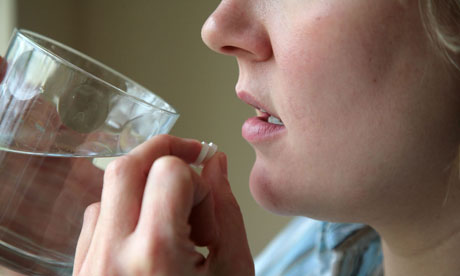
Doctors have drawn up plans to sequence the full genetic code of thousands of people in a landmark project to personalise their medical care.
Volunteers will have all six billion letters of their genome read, stored and linked to their medical records to help doctors prescribe more effective drugs and other therapies.
The prestigious Mayo Clinic in the US will launch the pilot study early next year as part of an ambitious move towards an era of "proactive genomics" that puts modern genetics at the centre of patient care.
The trial reflects a growing trend in medicine to use genetic information to identify those patients who will benefit most from a drug and those who will respond better to an alternative.
Other medical centres around the world that are thinking of introducing their own whole genome tests will be watching the trial with interest.
The wealth of information locked up in the human genome can help doctors advise patients on lifestyle changes to stave off diseases they are at risk of developing, but in many cases that advice is familiar and generic – for example focusing on healthy eating, regular exercise, drinking in moderation and not smoking.
The Mayo Clinic trial goes further by giving doctors all the genetic information they need to choose drugs that will work best for a particular patient while minimising side effects.
Many clinics already offer specific genetic tests to steer patient treatments, but these are often used in a piecemeal fashion and reactively, for example when a patient fails to respond to a drug or experiences an adverse reaction. Under the new scheme, doctors will have a patient's genetic makeup available to inform their prescriptions from the start.
Dr Gianrico Farrugia, director of the Centre for Individualised Medicine at the Mayo Clinic in Minnesota, said the cost of sequencing a person's whole genome – some 23,000 genes – has fallen so rapidly that it was now comparable to the price of a single gene test.
The project will help managers at the clinic decide whether it makes sense to read and store a patient's whole genome early on, instead of ordering single genetic tests as and when the need arises.
"We are convinced that whole genome sequencing is going to radically change the way we practice medicine," Farrugia told the Guardian. "The question is, how do you change the practice of medicine? We cannot expect doctors to say, 'Ok, we accept it's a great thing, let's do it.'"
Patients who join the study will have either their whole genome read or a subset of genes that are linked to diseases. Another group will be tested for 83 genes that govern how the body metabolises drugs.
Through discussions with doctors and counsellors, patients who have their whole genome sequenced will decide how much genetic information they want to know. Most patients are expected to want to learn only about genetic risk factors that lifestyle changes or medication can influence.
Doctors will keep track of the patients and their prescriptions to see whether whole genome sequencing, or more limited genetic testing, benefits them or reduces the costs of their treatment.
The trial could help scores of patients who find out that certain pills are ineffective, or damaging to them, only after beginning a course of the drugs. For example, Farrugia says that one in five people with heart problems who are prescribed a clot-busting drug called Clopidogrel (also called Plavix) see no benefit because of a single gene that prevents them from processing it properly. Under the new scheme, doctors would be able to check for the gene before choosing which drug to prescribe.
The shift towards whole genome sequencing is expected to become more valuable as doctors and scientists piece together how multiple genes influence disease and how the body reacts to drugs.
"With piecemeal genetic testing you only test for what you know. The advantage of whole genome sequencing is that you go after everything. Not only does that give you a fuller picture, but it allows you to draw complex interaction pathways that you cannot draw by going after select genes," Farrugia said.
The trial will help physicians at the Mayo Clinic work out how best to store a person's genetic code and develop procedures to explain the information to patients and direct their medical care.
"This is a trend that will definitely be found across the developed world in the coming two to five years," said Tim Aitman, professor of clinical and molecular genetics at Imperial College London.
"The questions that arise are who is going to store the information, how is it stored securely, who has access, and what are you going to do with information that you or the patient might not necessarily want to find out? There are some significant ethical and privacy issues and they are probably more difficult to solve than storing the information."
Anneke Lucassen, professor of clinical genetics at Southampton University, cautioned that genetic testing was not yet good enough to give definitive information for patients.
"Although the cost of a full genome sequence is getting to be very affordable, robust interpretation of what it means for an individual lags behind," she said. "There's a lot of promise about tailoring treatments, or modifying lifestyles, depending on particular genetic variation, but to date, with a few exceptions, the clinicial utility of genome sequencing is limited."

